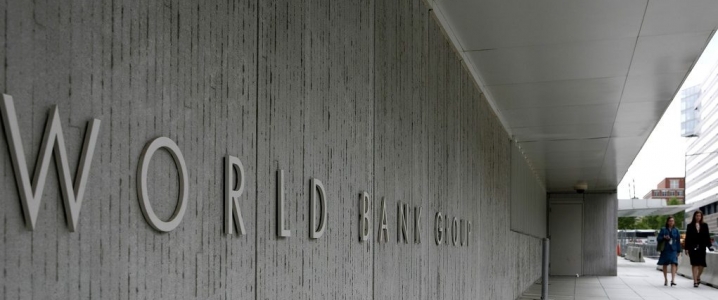
After several months of oil price rises and then a sharp reversal over the last few weeks, world oil markets are in for more heightened volatility next year because of scarce spare production capacity among OPEC members. This warning comes from the World Bank, which in the latest edition of its Russia Economic Report said that OPEC was the single most important factor for oil price outlooks in the short term.
“As non-OPEC oil supply growth is expected to be greater than that of global demand, the outlook for oil prices depends heavily on supply from OPEC members,” the report’s authors noted. The level of spare capacity among OPEC members is estimated to be low at present, suggesting there are limited buffers in the event of a sudden shortfall in supply of oil, raising the likelihood of oil price spikes in 2019.”
The World Bank is not alone in seeing OPEC’s spare capacity as an important factor for oil prices going forward. Spare capacity provides a cushion against price shocks as evidenced most recently by the June decision of the cartel and Russia to start pumping more again after 18 months of cutting to arrest a too fast increase in oil prices. They had the capacity to do it and prices stopped rising, helped by downward revisions of economic forecasts.
Now, the oil market is plagued with concerns about oversupply, but this could change quite quickly if there is any sign that OPEC is nearing the end of its spare production capacity. As to the likelihood of such a sign emerging anytime soon, this remains to be seen.
The U.S. Energy Information Administration estimates OPEC’s spare capacity at a little over 1 million bpd as of the fourth quarter of this year. That’s down from 2.1 million bpd at the end of 2017, but with Venezuela’s production in free fall and with Iran pumping less because of the U.S. sanctions, the total spare capacity of the group has declined substantially.
A Nigerian oil official in September echoed the sentiment expressed by the World Bank in its Russia report. “OPEC will do everything to stabilize, to balance the market but I’m sure you’re also aware that there’s a limit to what they can do. You must have the spare capacity,” NNPC’s head of oil marketing told Reuters in late September, when the cartel was still expanding production to put a lid on prices.
For now, it seems that this spare capacity would not be needed as we go into 2019. Economic forecasts suggest stable but slower oil demand growth as emerging economies, notably China, grow at a slower pace. Interestingly, the effect of such forecasts on prices is invariably negative regardless of the downward revisions in these growth outlooks. China’s economy, for example, is seen to grow by 6.3 percent next year by local economists. That’s compared with an estimated 6.6 percent this year. The difference is just 0.3 percentage points, but it is seen as significant enough for prices to stay where they are.
The price shocks could be caused by production outages in some of the less stable OPEC members or by a surprising jump in demand, the latter being less likely than the former. The market for crude oil is already supervolatile, what with the U.S.-China trade war, the cuts discussed by OPEC, and the internal tensions in the cartel that make an agreement on these cuts far from certain. A production outage in Libya or Nigeria could indeed lead to a price spike very quickly because of the scarce spare capacity in OPEC. On a positive note, these production outages tend to be shorter these days, so any price spike caused by one would be short-lived.